Immigration Relief Options for Undocumented Youth in Care
Alan J. Dettlaff, PhD & Caitlin O’Grady, MSW (March 2015)
This brief focuses on policies that address immigration relief options for undocumented immigrant youth involved with the child welfare system. Undocumented youth face barriers in accessing services, including educational and employment opportunities, that can have long-term negative impacts on their well-being. Recognizing the challenges that undocumented youth experience in accessing services and opportunities, the policies in this category aim to reduce these barriers by ensuring that child welfare practitioners are aware of available opportunities for youth to gain legal status. The policies discussed throughout this brief both provide staff with an overview of immigration relief options and offer guidance to staff on how they can provide assistance throughout the application process.
Read the Brief

